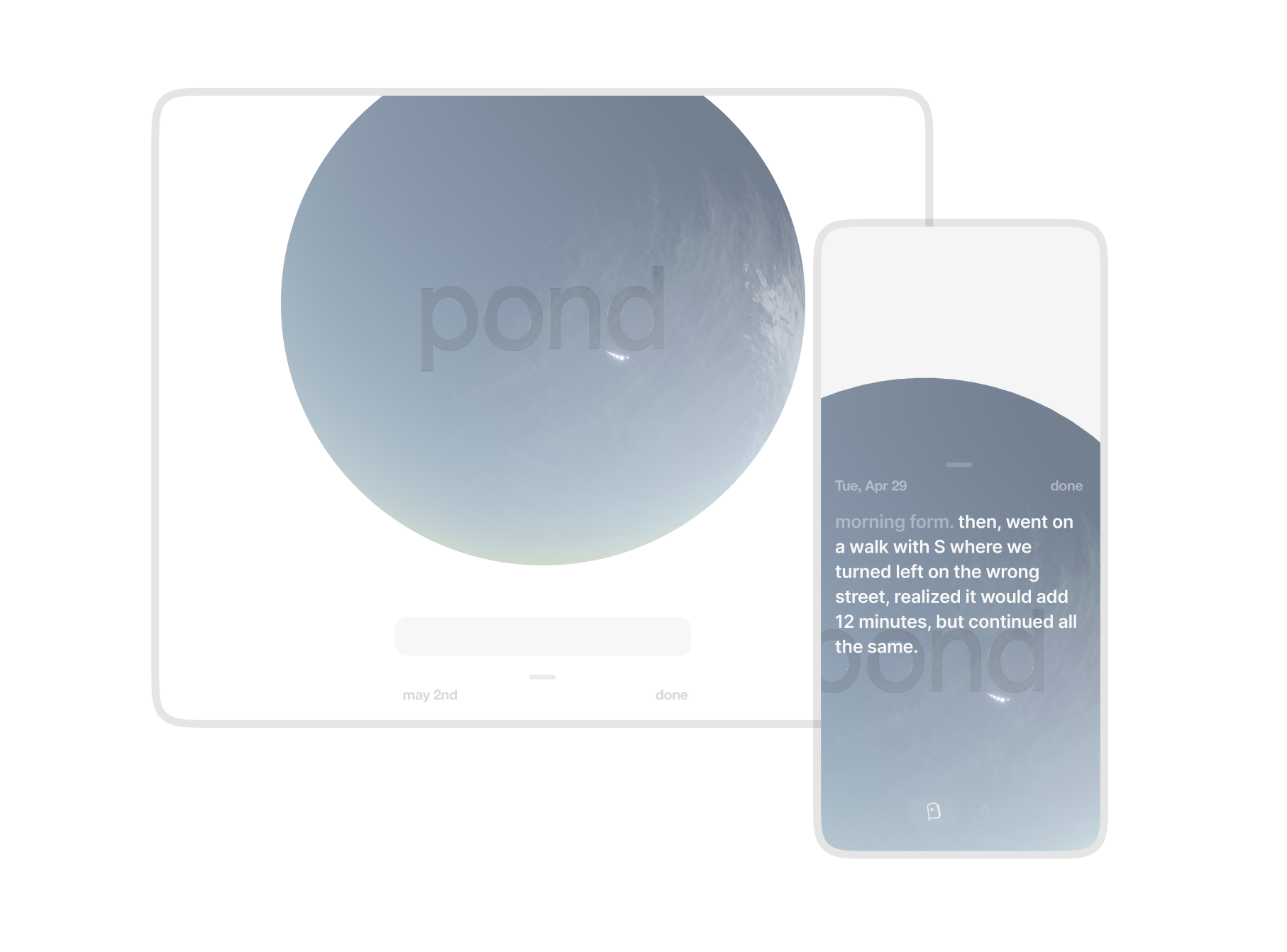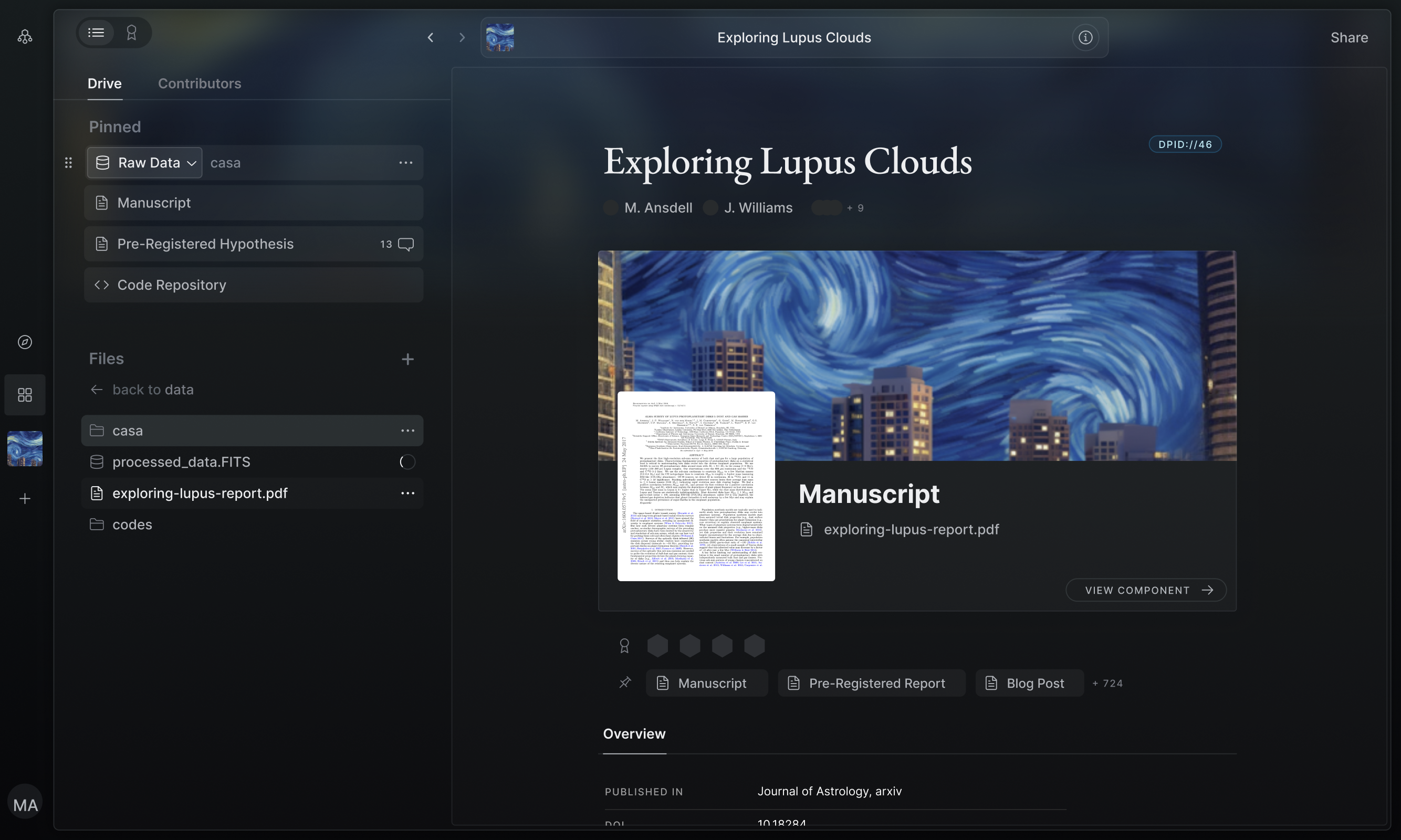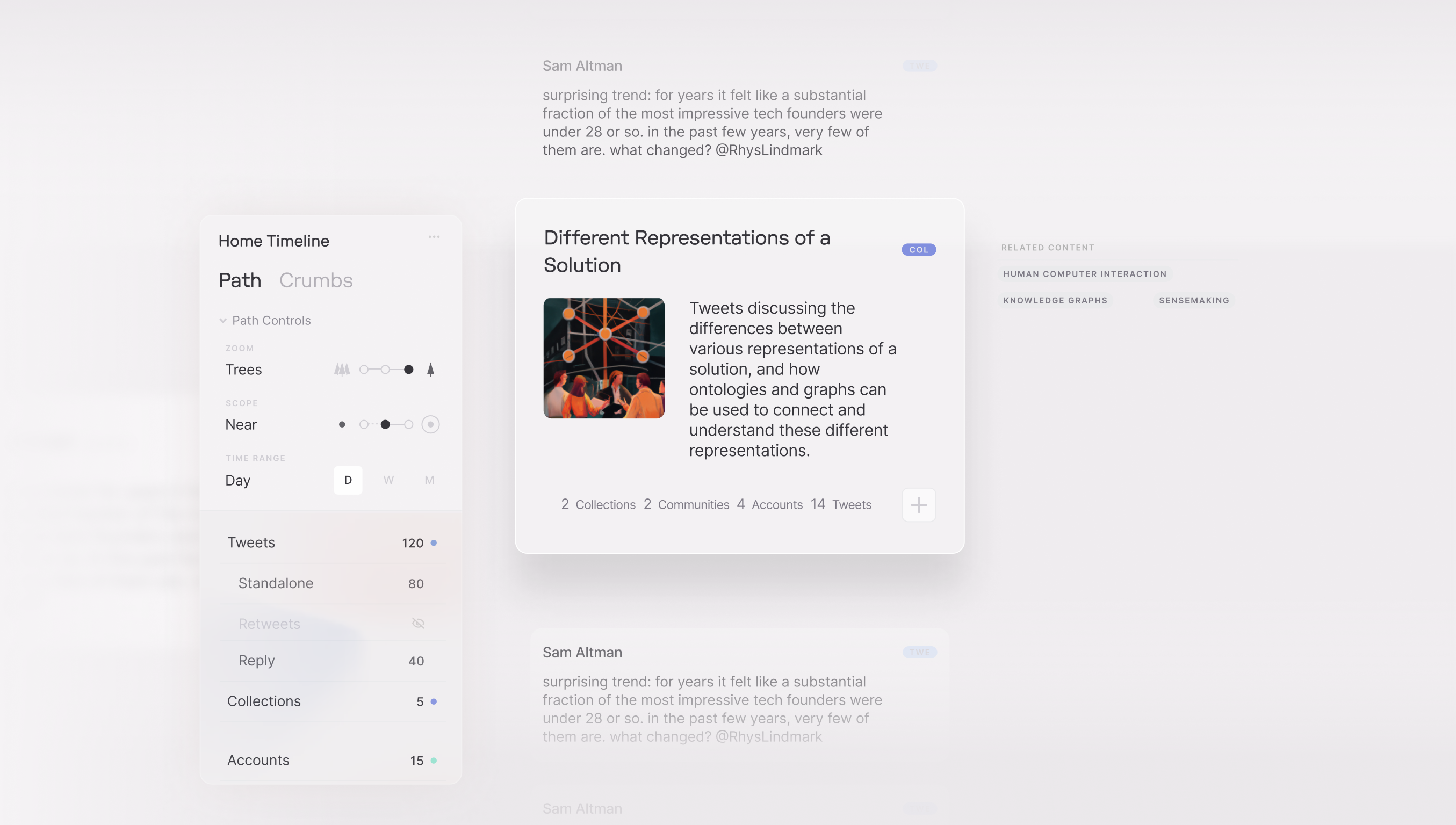


curl[projects] is creating
systems for conscious living
pond
a living journal for mindful practice
2024 - present

︎ Independent
︎︎︎ Manifesto, Web App
[[]] local-first-software, mindfulness, inner-development
pond is a digital journal designed to nurture growth through cycles of reflection, intention, and action.
It is also a digital space inhabited by Innio, a digital being who acts as a gentle listener and guide, connecting you to timely wisdom to support your personal transformation.
︎︎︎ Manifesto, Web App
[[]] local-first-software, mindfulness, inner-development
pond is a digital journal designed to nurture growth through cycles of reflection, intention, and action.
It is also a digital space inhabited by Innio, a digital being who acts as a gentle listener and guide, connecting you to timely wisdom to support your personal transformation.
Prior Work
product (design, engineering) work at startups from 2021 - 2024
desci nodes
a radically open scientific publishing platform
2023 - 2024

︎ DeSci Labs
︎︎︎ Link
[[]] decentralized-science, open-science
As Design Technologist at DeSci Labs, I developed and designed the core concepts and interfaces of DeSci Nodes, a radically open publishing platform built on IPFS, enabling researchers to seamlessly publish papers, code, and data as open-access, version-controlled “Research Objects”.
I also designed the user interactions for a forthcoming cryptoeconomic peer review system, empowering scientific communities to create and award quality badges to research objects, and financially reward reviewers—transforming peer review into an open, fair, and community-driven process.
︎︎︎ Link
[[]] decentralized-science, open-science
As Design Technologist at DeSci Labs, I developed and designed the core concepts and interfaces of DeSci Nodes, a radically open publishing platform built on IPFS, enabling researchers to seamlessly publish papers, code, and data as open-access, version-controlled “Research Objects”.
I also designed the user interactions for a forthcoming cryptoeconomic peer review system, empowering scientific communities to create and award quality badges to research objects, and financially reward reviewers—transforming peer review into an open, fair, and community-driven process.
trails.social
a customisable and interpretable feed algorithm supporting a mindful social media experience
2022

︎ Roote Foundation
︎︎︎ Concept, Github, Demo
[[]] human-in-the-loop,
custom-feeds,
context-aware-navigation
trails.social offers an alternative to how we find and engage with content on social media by providing customizable feeds that align with our personal interests—letting us easily tune in or step away whenever we like.
Behind the scenes, trails analyzes and organizes social connections and content into a structured network called a “social knowledge graph”, enabling transparent, understandable recommendations that put users fully in control.
Development ceased after Twitter restricted access to its API for third-party clients.
︎︎︎ Concept, Github, Demo
[[]] human-in-the-loop,
custom-feeds,
context-aware-navigation
trails.social offers an alternative to how we find and engage with content on social media by providing customizable feeds that align with our personal interests—letting us easily tune in or step away whenever we like.
Behind the scenes, trails analyzes and organizes social connections and content into a structured network called a “social knowledge graph”, enabling transparent, understandable recommendations that put users fully in control.
Development ceased after Twitter restricted access to its API for third-party clients.
abstract poetry
a generous interface for iterative and semantic search of academic papers
2022

︎ Deepcore AI Lab,
a Softbank Subsidiary
︎︎︎ Concept, Figma,
Github, Demo
[[]] guided-ML,
open-science,
bayesian-inference
abstract poetry demonstrates iterated semantic search to support the discovery of academic papers.
Using user impressions on paper abstracts as inputs to a Bayesian algorithm, abstract poetry traverses an embedding space of unseen abstracts to locate regions of possible interest.
a Softbank Subsidiary
︎︎︎ Concept, Figma,
Github, Demo
[[]] guided-ML,
open-science,
bayesian-inference
abstract poetry demonstrates iterated semantic search to support the discovery of academic papers.
Using user impressions on paper abstracts as inputs to a Bayesian algorithm, abstract poetry traverses an embedding space of unseen abstracts to locate regions of possible interest.